7 items you should never wash in hot water – laundry experts reveal how to protect your belongings from damage
Washing these items hot could cause shrinking and fading, pros warn
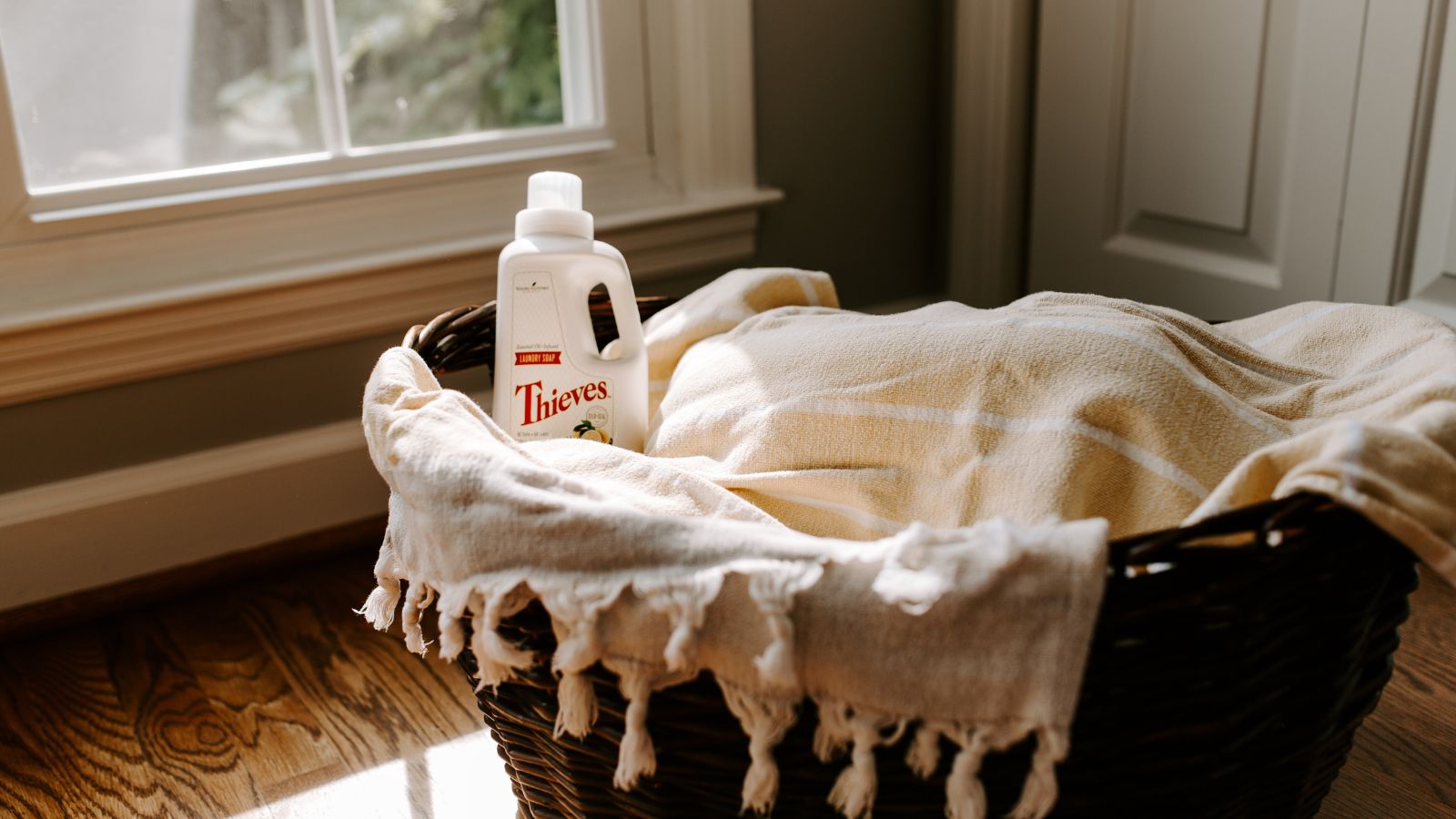

If an item of clothing or a belonging is dirty, chucking it in the washing machine on a hot wash (meaning above 130 degrees Fahrenheit) is a common solution, but it can also result in shrunken, faded or damaged items.
Of course, hot washes are great for killing bacteria and sanitizing items that need a more thorough clean, but a lot of your belongings are better off in a cooler wash, at around 86°F to 104°F, or simply being hand washed in cold water.
We spoke to our experts for their tips on how to do laundry and they shared the seven items to never wash in hot temperatures to avoid a long list of damaged clothing and linens.
7 things to never put in a hot wash
1. Delicates

The most well-known items to keep away from hot water are delicates – think wool, cashmere, silks and underwear, as these can shrink or become distorted when exposed to hot water. Learn how to wash cashmere in our dedicated guide.
'Delicate fabrics like wool, silk, lace and sweaters can shrink and fade when washed in hot water,' says Ken Doty, cleaning expert and COO at The Maids. 'Try using a cold cycle for a gentle approach, or do hand washing.'
If you decide to wash your delicates, in the washing machine, we recommend investing in a mesh laundry bag, such as the Durable Honeycomb Mesh Laundry Bags for Delicates available at Amazon. These are specifically designed to protect your delicates from wear and tear in the washing machine, and are particularly good for extending the life of lingerie.
Daniel Brown, CEO at Handy Cleaners, recommends hand washing these items with Woolite Extra Delicates Care Detergent available at Amazon, as 'it is gentle enough for use during cold washing of these fabrics.' He also offers his expert-approved homemade solution, for hand washing clothes: 'Mix one tablespoon of mild baby shampoo with a gallon of cold water for a DIY gentle wash that's perfect for delicate fabrics.'
Baby shampoo, such as the bestselling Johnson's Baby Bath Shampoo is available at Walmart, or most large stores.
2. Workout clothes
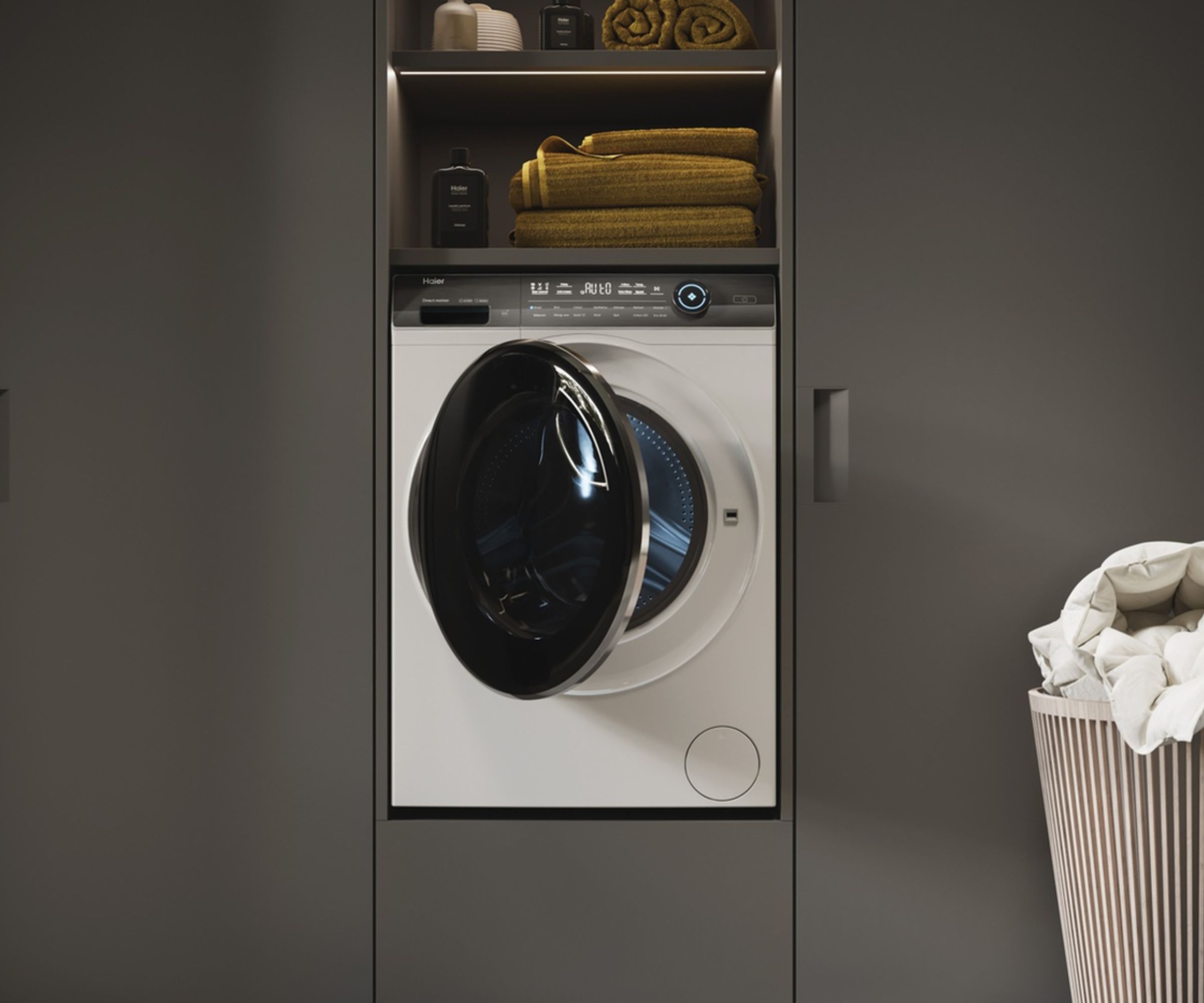
While you may think your sweaty gym kit belongs in a hot wash to kill off bacteria, elasticated clothing will fare better in a cold wash.
'Workout clothes are the exception here because they’re usually elastic and this type of fabric will shrink over time when exposed to heat,' says Alex Varela, general manager of Dallas Maids.
Your washing machine probably has a specific setting for washing sports kit, so opt to use that to ensure a thorough clean. Otherwise, pre-soak in baking soda and vinegar (one cup each) in a cold water submersion.
3. Leather
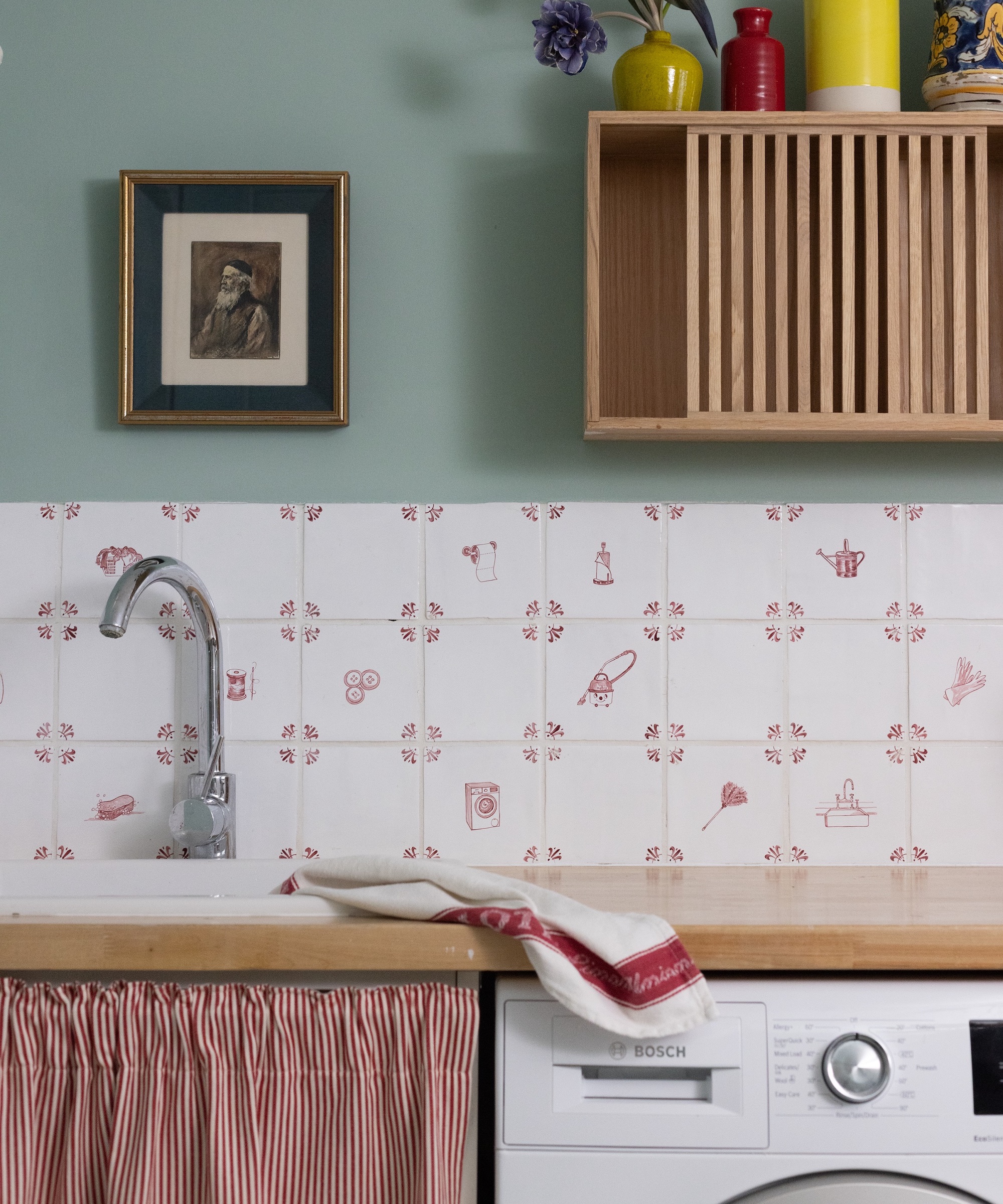
When cleaning faux leather and leather clothing, never wash on hot, warn experts.
'Leather can be rendered stiff and brittle from repeated hot water washes,' says Doty, and it may lost its shape or even crack.
'To play is safe, stick to lukewarm water and a gentle soap,' says James King, operations manager at DeluxeMaid. 'If it’s just a little smudge or mark, instead of going all out with washing, use a damp cloth and a mild soap to gently wipe the spot clean.'
King recommends using Castile or Weiman leather wipes available at Walmart, as they condition too. Always let leather air dry at room temperature, as exposing it to hot air will cause cracking.
4. Baseball hats

'I wear baseball hats all the time when I am outside working, and I’ve learned that you should always wash baseball hats with cold water – never hot water,' says Jeremy Yamaguchi, CEO of Lawn Love. 'The key with cleaning baseball hats is being gentle, otherwise they can lose their shape or endure damage on their graphics.'
Hot water can often cause some warping to the bill, and it can also cause the hat itself to shrink. Cold water helps hats hold their shape and size so that you can keep wearing them for years to come.
Baseball caps are one of many unexpected things you can put in the washing machine, just be sure the check the specific laundry symbols on yours first.
5. Memory foam

Can you wash memory foam? It's certainly not impossible, but any memory foam pillows or mattress toppers should be kept away from hot water washes, advises Doty. 'Memory foam is another material that can get soggy and fall apart when washed in hot temperatures,' he says.
So, when cleaning a memory foam mattress or washing memory foam pillows, we recommend using one of our best steam cleaners on a cool setting, for good sleep hygiene.
Our top pick and overall winner is the Black+Decker 7-in-1 Steam Mop available at Amazon, which has great attachments for a wide variety of uses around the home
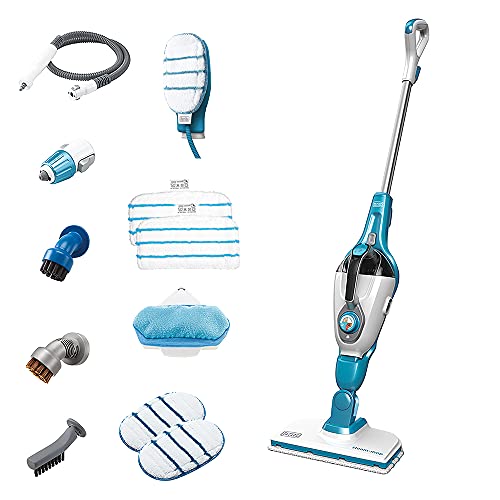
This is our top pick and overall winner of the best steam cleaners. It has great attachments for a wide variety of uses around the home, variable-steam control and a large-capacity tank, for prolonged cleaning use.
6. Dark and bright colors

Washing dark and bright colors in hot water risks fading, making clothes slowly less vibrant as time goes by.
'Instead, using cold water helps seal color into the fabric, thereby keeping your clothes vibrant, even after wearing them for a long time,' says Brown.
Brown's expert tip is to turn garments inside out before washing them, to help save their colors. 'Also, Persil Color Gel Laundry Detergent available at Walmart will be of great help here,' he adds.
For a homemade solution, Brown also recommends adding half a cup of salt in order to set dye and protect against bleeding when washing new, dark colored garments for the first time. We recommend the Great Value Plain Salt available at Walmart for this, as it's affordable and high-quality.
7. Denim
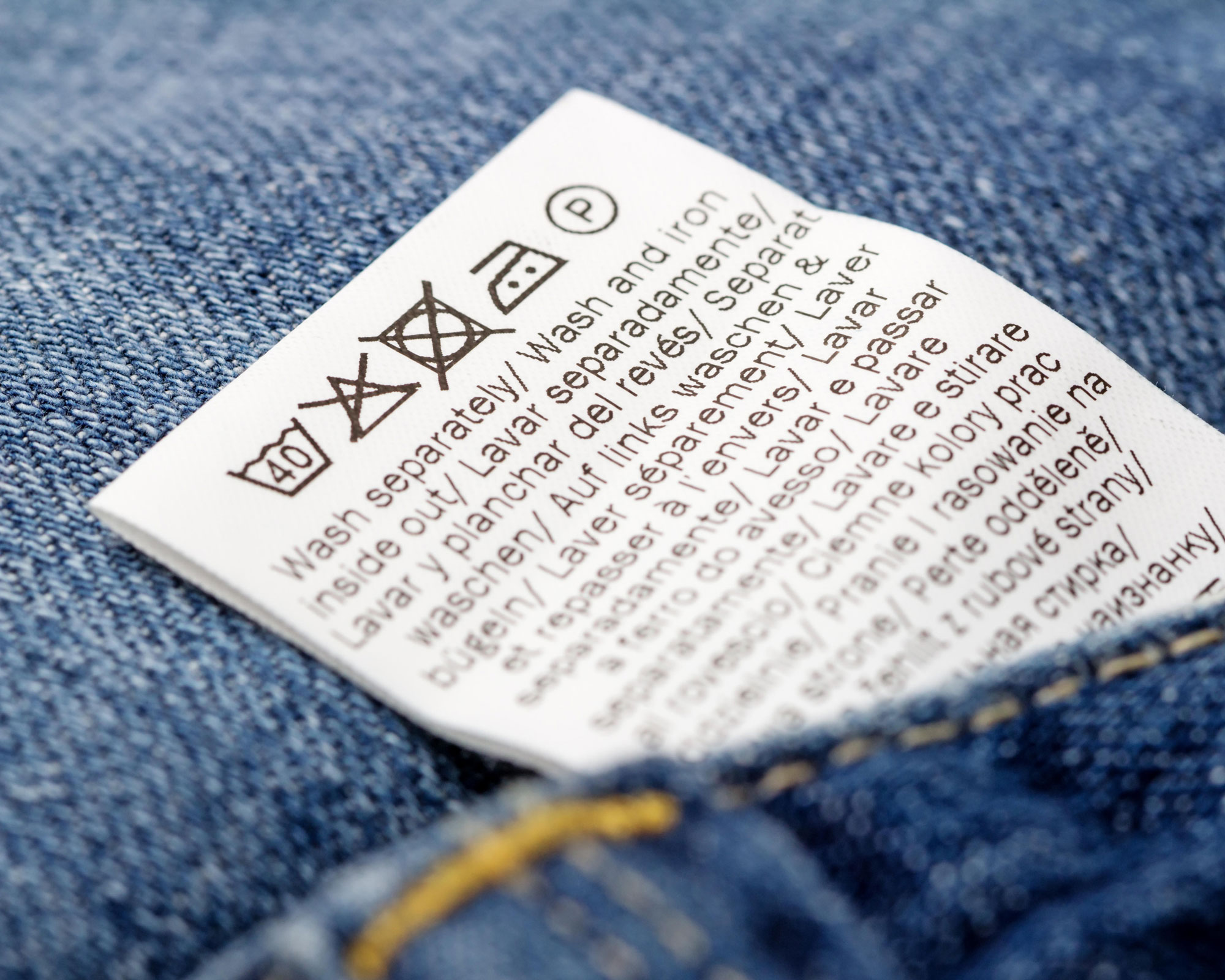
'Denim is a tough fabric, but it’s not a fan of hot water,' says King. 'It can cause it to shrink, lose its shape, and even fade in color over time, so wash it in cold water instead. If you don’t feel like washing after every wear, spot clean stains and wash them less often to make them last longer.'
In fact, your jeans are probably among the things you are washing too frequently. For spot cleaning, we recommend the Tide To Go Instant Stain Remover Pen and Laundry Spot Cleaner available at Walmart, as it has a small nib for concentrated application, is portable so perfect for throwing in your bag and bringing on vacation, and is effective on tough stains.
'Go for the gentle or delicate cycle to minimize wear and tear on the fibers,' adds King, to avoid making any washing machine or laundry mistakes. 'After washing, it’s best to air dry them to prevent shrinking, but if you need to use a dryer, opt for the lowest heat setting. Another cool trick is to add a cup of salt to the wash. That will help lock in the color and reduce fading.'
FAQs
Should bedsheets be washed in hot water?
When you want to change your bedsheets, opt for a hot wash, to kill bacteria and sanitize them thoroughly, particularly if someone in your household has recently been ill. Washing machines usually have a bedding setting, so using that will ensure you avoid making any bedding laundry mistakes.
If however, your sheets are made with silk, proceed with caution. It's always best to check your linen's care label for instructions first.
Should socks be washed in hot water?
Much like bedsheets, socks are regularly exposed to bacteria from your feet and shoes, so it is advised to wash them hot to keep them clean.
Unlike pants and bras, most socks are safe to put in the dryer, but use this tumble dryer temperature guide to avoid any mishaps.
Socks made from bamboo however may shrink with heat, so check their washing and drying instructions just to be on the safe side.
Once you're up to speed, learn how to wash and care for cotton.
Sign up to the Homes & Gardens newsletter
Design expertise in your inbox – from inspiring decorating ideas and beautiful celebrity homes to practical gardening advice and shopping round-ups.

Ottilie joined Homes & Gardens last year, after finishing a Master's in Magazine Journalism at City, University of London. With previous contributions in Livingetc and Motorsport Magazine, she produces content for the Solved section on the website, focusing on clever tips and tricks to keep your home beautiful, organized and clean. She also has an undergraduate degree in English Literature and History of Art from the University of Edinburgh, where she developed a love for inspiring interiors and architecture.
-
 6 things you should never throw in the trash – and what to do for safe disposal instead
6 things you should never throw in the trash – and what to do for safe disposal insteadFrom batteries to space heaters, experts reveal what not to throw
By Andy van Terheyden Published
-
 Worst-smelling plants to avoid – experts reveal 5 pungent species and suggest perfumed options to grow instead
Worst-smelling plants to avoid – experts reveal 5 pungent species and suggest perfumed options to grow insteadThese are some of the worst-smelling plants that can cause quite a stink
By Thomas Rutter Published
-
 My cheap dehumidifier makes easy work of air drying laundry indoors despite the humidity of spring showers – get yours on sale for just $49 now
My cheap dehumidifier makes easy work of air drying laundry indoors despite the humidity of spring showers – get yours on sale for just $49 nowIt's useful for lots of things around my home
By Punteha van Terheyden Published
-
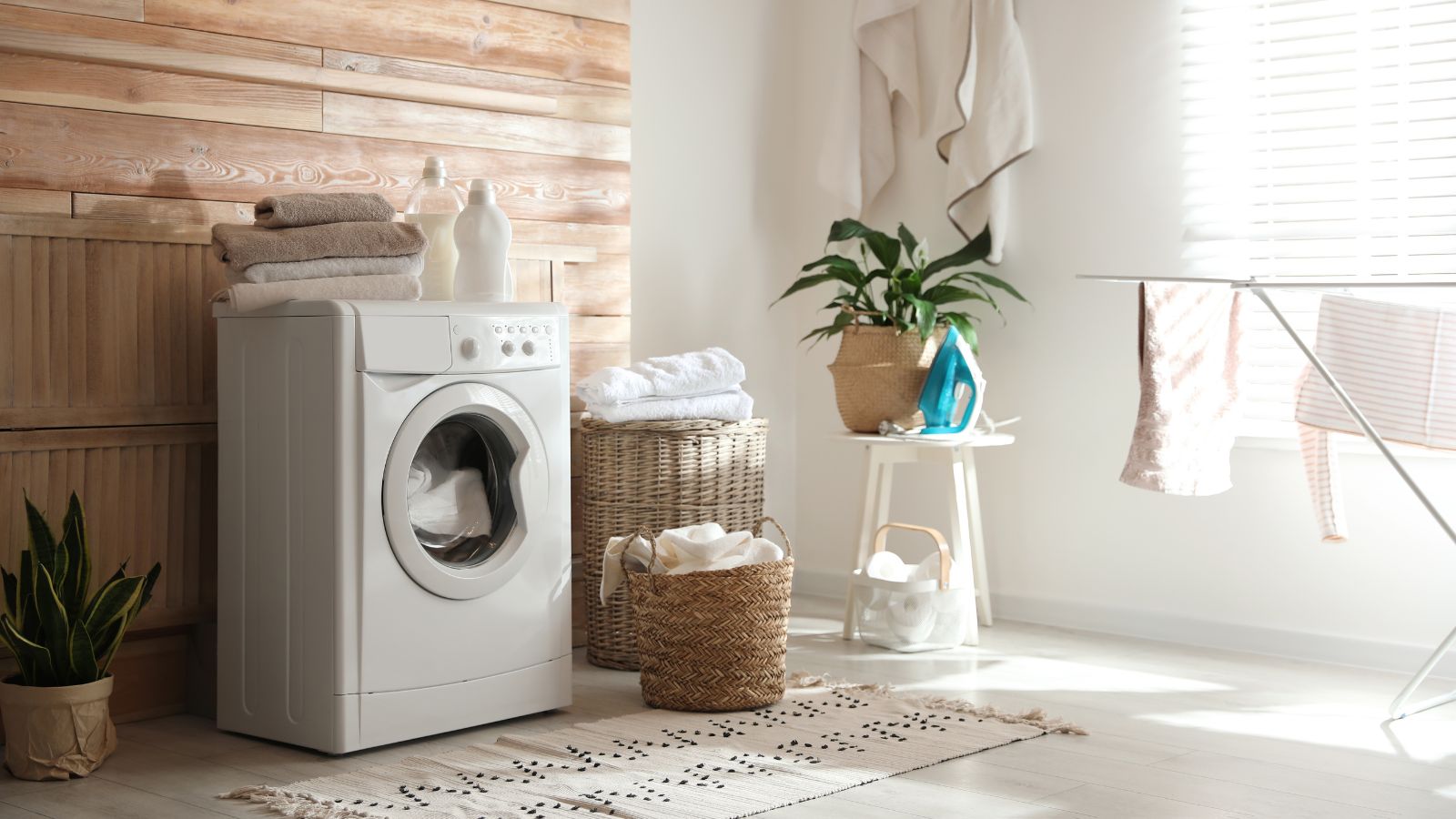 Looking for a natural laundry-softening alternative? I'm a professional cleaner and it's time to ditch synthetic ones for 5 non-toxic softeners that work
Looking for a natural laundry-softening alternative? I'm a professional cleaner and it's time to ditch synthetic ones for 5 non-toxic softeners that workRefresh your laundry routine with these fabric softener alternatives
By Karina Toner Published
-
 Unlock the magical mold-killing and stain-busting superpower of this humble household ingredient that costs just 50 cents
Unlock the magical mold-killing and stain-busting superpower of this humble household ingredient that costs just 50 centsIf you have aspirin in the house, you can use it to banish mold
By Ottilie Blackhall Published
-
 5 warning signs you're using the wrong amount of detergent – avoid greasy residue, stiff fabrics and skin issues with these simple cleaner-approved tips
5 warning signs you're using the wrong amount of detergent – avoid greasy residue, stiff fabrics and skin issues with these simple cleaner-approved tipsPlus, why it's important to get the amount just right
By Ottilie Blackhall Published
-
 6 ways to prevent mold and damp in bedrooms – expert solutions to maintain a safe sleep environment
6 ways to prevent mold and damp in bedrooms – expert solutions to maintain a safe sleep environmentDon't sleep on these six tips, experts urge
By Seraphina Di Mizzurati Published
-
 Laundry experts reveal 7 unexpected washing rules you can throw out the window – from separating fabrics to mixing whites and colors
Laundry experts reveal 7 unexpected washing rules you can throw out the window – from separating fabrics to mixing whites and colorsForget everything you thought you knew
By Ottilie Blackhall Published
-
 Using this button on your washing machine will cut your bills and help the planet
Using this button on your washing machine will cut your bills and help the planetA single switch can make a load of difference
By Chiana Dickson Published
-
 Experts reveal the 5 toxic items lurking in your laundry room – and what to swap them with for a healthier routine
Experts reveal the 5 toxic items lurking in your laundry room – and what to swap them with for a healthier routineFor a room focused on cleaning, some of its items can be surprisingly toxic
By Chiana Dickson Published